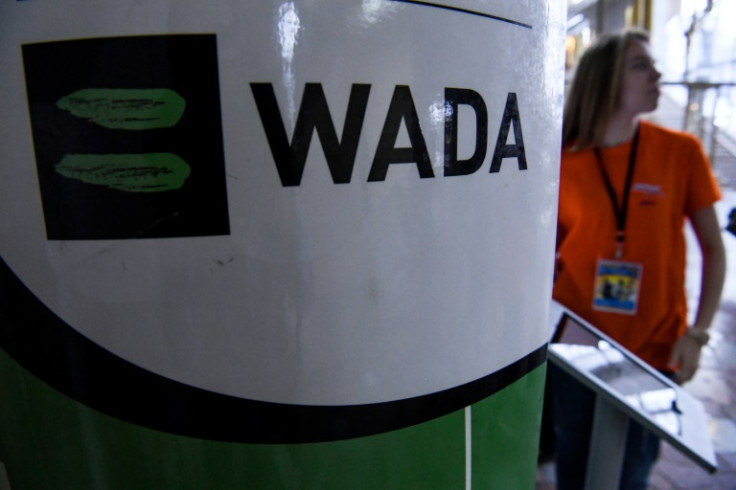Eleven Swimmers In Doping Scandal Named In China Olympic Team

China will send 11 swimmers implicated in a major doping scandal to next month's Paris Olympics, after the country named its squad for the Games.
Twenty-three Chinese swimmers tested positive for the heart drug trimetazidine (TMZ) -- which can enhance performance -- ahead of the pandemic-delayed 2021 Tokyo Games, it emerged in April.
They were not sanctioned after the World Anti-Doping Agency (WADA) accepted the argument of Chinese authorities that the positive tests were caused by food contamination.
Several of the swimmers went on to win medals, including gold, in Tokyo months later.
China named its swimming squad for Paris on Tuesday. Among them were 11 of the 23 who tested positive for the banned TMZ and were named in news reports in April that broke the story.
The 11 includes butterfly specialist Zhang Yufei, who won two golds in Japan, as well as another gold-medallist in Wang Shun.
Rising star Qin Haiyang is another who was named in media reports in April and will go to Paris.
In April, The New York Times and German broadcaster ARD reported that 23 Chinese swimmers tested positive for TMZ at a domestic competition in late 2020 and the first days of 2021.
It was determined by Chinese anti-doping authorities that they ingested the substance unwittingly from tainted food and no action against them was warranted.
WADA's decision not to punish the swimmers has provoked intense criticism, particularly from the United States.
The head of the US national anti-doping agency Travis Tygart has called the situation a "potential cover-up", an allegation WADA and China have denied.
WADA has said it will send a compliance audit team to China to "assess the current state of the country's anti-doping programme", an investigation that China has said it will cooperate with.
This month The New York Times reported that Qin, Wang and another swimmer involved in the TMZ case had also tested positive for a different banned substance in separate cases several years earlier.
The Times said the three athletes tested positive for clenbuterol in 2016 and 2017.
Chinese authorities argued the three had ingested the substance inadvertently through contaminated meat and no disciplinary action was taken.
WADA said the trio in question were found to have levels of clenbuterol which were between "six and 50 times lower" than the minimum reporting level currently used by the agency.
In a statement to AFP, China's anti-doping body hit back this week, calling the latest Times story a violation of "media ethics and morals".
© Copyright AFP 2024. All rights reserved.











